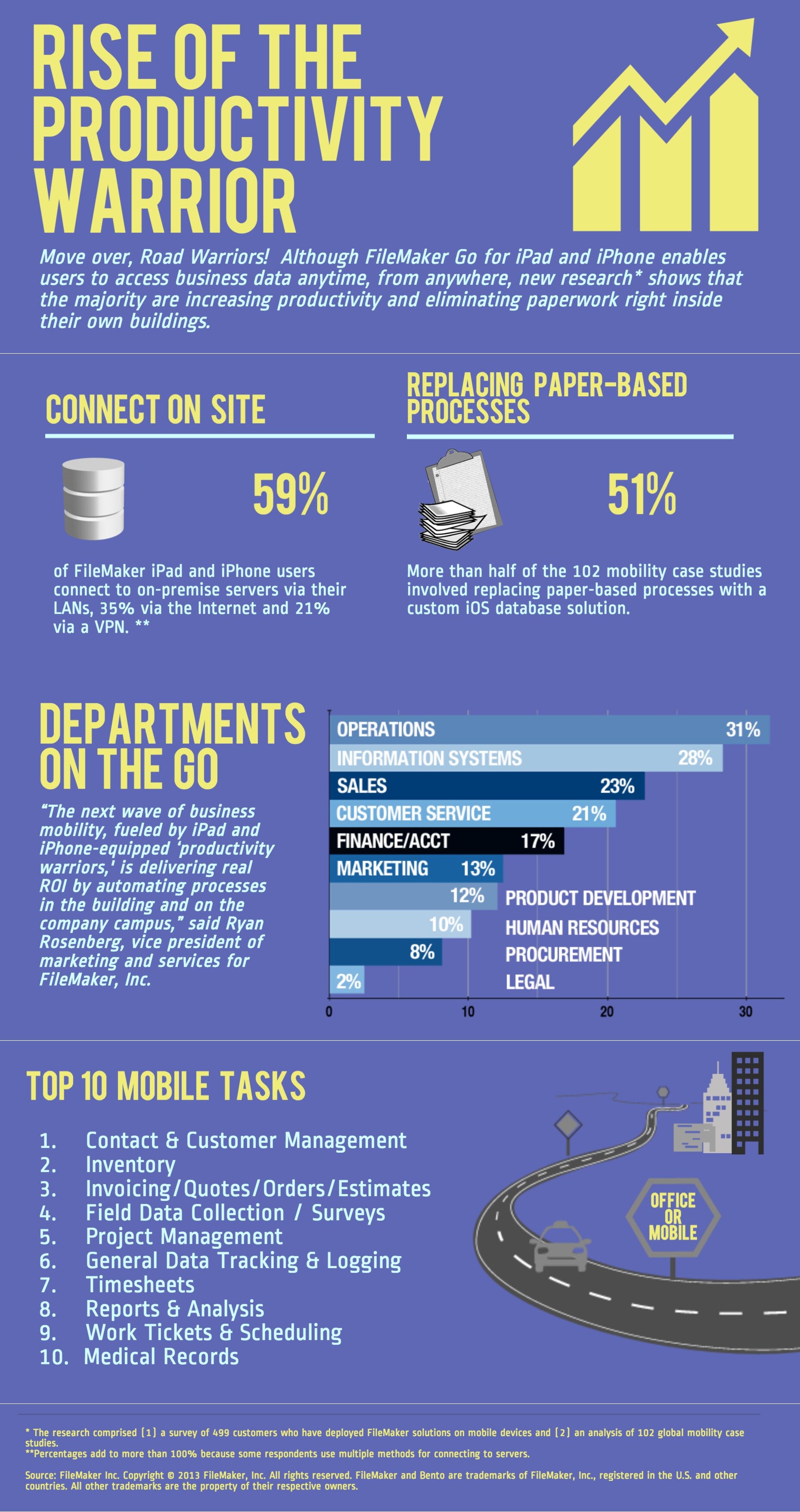Today FileMaker released the results of a study concerning mobile applications and the new definition of “mobile worker”. With millions of deployments, including more than 500,000 downloads of FileMaker Go, a free app for accessing FileMaker databases from iPad and iPhone – surveyed customers included almost 500 who have deployed FileMaker solutions on iOS devices.
“The next wave of business mobility, fueled by iPad and iPhone-equipped ‘productivity warriors,’ is delivering real ROI by automating processes in the building and on the company campus,” said Ryan Rosenberg, vice president of marketing and services for FileMaker, Inc. “Of course we see many traditional road warriors using FileMaker, but we were surprised to find how much use was actually occurring inside the building. We were also impressed at how frequently businesses are replacing paper-based processes with iPads and iPhones, thus automating areas of their business not practical before.”
Actually, this is not surprising [to me] at all. I wrote in depth about this exact idea here (in 2010), and here (in 2011), and in my 2011 white paper (Apps: The Second Wave of IT Consumerization).
In the white paper, Donald Farmer, former business intelligence visionary At Microsoft and currently product evangelist at mobile business intelligence company QlikTech, had this to say about mobile workers.
“… you don’t have to be a mobile worker to need mobility.”
Donald Farmer is not alone in this assertion; the definition of mobile worker has been transformed in the last decade.
Mobile employees are found in the company cafeteria eating lunch while reviewing performance data, in the hallway having an impromptu sales conversation, and in conference rooms two doors down, or across town, or in a different country. The geo-location of a worker has no relationship to the definition of mobile work. At no other time in the history of computing has the availability of truly portable and highly useful personal computing devices been pervasively available and at relatively low cost. Predictably, the definition of “mobile worker” has changed because the nature of modern mobile devices has changed. Advanced software solutions designed to enhance the new freedom that mobile devices offer, will rapidly transform the nature of work and where it can be accomplished.
The Always-On Employee
Today, nearly every worker is a mobile worker. Some are more mobile than others. But all workers can benefit from the increased agility of doing work-related stuff in any geo-context. Organizations expect it’s employees to be always-on. As invasive as this sounds, most workers would rather have it that way. Employees want to be in touch; they want to be in-the-loop, and they typically regard other employees who aren’t immediately accessible, as a hinderance to the overall ability to get stuff done.
The data in this InfoGraphic and the survey results confirms my earlier assertions – the difinition of mobility has little to do with where your workforce gets the job done.
